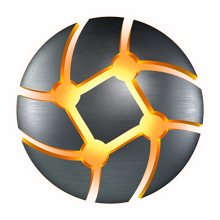Stasism at the European Academy for childhood diseases
Childhoood disability is quite common as it happens in about 1 in 50 children. There are a lot of different types of disabilitties that develop after birth and in many cases, these children require early interventions and various types of therapy.
Disability in chidlhood
Disability in childhood can produce a lifelong impact on a person’s physical and mental health, and it can be a long process to fully take part in everyday life’s activities. In the context of a global pandemic, this has proven to be a bit more difficult. Taking into consideration that even without a global crisis, children living with disabilities are among the world’s most affected and vulnerable.
The European Academy of Chidlhood Disability (EACD Europe) organised their annual meeting virtually in order to discuss ‘Childhood Disability in a Changing World’ and together with our medical doctors we took part in it and brought forward the personalized balance games solution for children with cerebral palsy.
Children who are dealing with a disability are in need of a normal childhood, with fun, games and motivation, socializing and being with their friends and family. The key to living a more healthy and fulfilling life with a disability is enriching one’s life with experiences and good moments. That’s why in the next parts of this article we’re going to talk about balance video games for kids and how Stasism is revolutionising therapy.
Childhood disability in the context of a pandemic
There is no doubt that the current global pandemic has left people all over the world feeling more anxious, more isolated, some dealing with mental health issues. The world has changed, the dynamics of various social situations has changed, and the marks of a global pandemic will still linger on.
One thing that perhaps not many of us have been thinking of however, is how children and even adults with a disability were coping during these transitional times. There are widespread concerts about the effects that social distancing and isolation has brought about, and in the face of a pre-existing health condition, these effects could increase risks.
The EACD meeting has put forward these concerns, but also presented the newest trends in rehabilitation and care. Technology is a large part of bettering people’s lives in various ways, and in the case of children with a disabiliy, this can bring significant change.
Many beautiful projects presented their findings and their research and innovation work. Among those, we were happy to share our study on personalized balance games for children with cerebral palsy. We are taking a huge step into the direction of improving children’s quality of life through fun, motivational play. We were even awarded the Mac Keith Press Best Abstract Awared for our presentation held by doctor Anna Kushnir.
Stasism at the European Academy for childhood diseases
Stasism is a revolutionary new social online platform with therapeutic physical video games made exclusively for people with Cerebral Palsy. We have performed research for about 4 years before creating this platform and we are happy to say that the positive results we got from our studies and beta testing are in line with what we are hoping to achieve.
The first of its kind, delivering a constant stream of new and exciting games, characters, features and much more, leading to a happier childhood. We talked a bit at the EACD 2021 about the positive effects video games have on children with cerebral palsy, as per our published study, and we emphasised the importance of play in early childhoood. Any child should be able to and allowed to have fun, and in the case of children with a disability, therapy through play is key to their wellbeing.
Stasism is a revolutionary new social online platform with therapeutic physical video games made exclusively for people with Cerebral Palsy. The first of its kind, delivering a constant stream of new and exciting games, characters, features and much more, leading to a happier childhood. Discover how.
